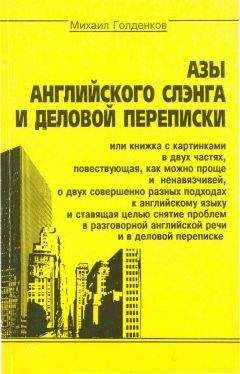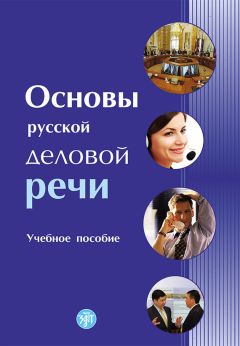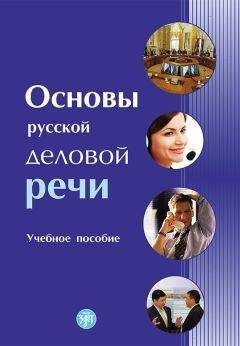Илья Франк - Английский язык с Р. Киплингом. Истории просто так
The things like black-beetles far down the beach are really trunks of dead trees (штуковины, похожие на черных жуков, далеко внизу на берегу, — это на самом деле стволы мертвых деревьев) that floated down the river from the Wet Wild Woods on the other bank (которые приплыли вниз по реке из Диких Дремучих Дебрей на другом берегу). The Man and the Woman used to drag them out and dry them and cut them up for firewood (Человек и Женщина вытаскивали их /из воды/ и высушивали их, и рубили их на дрова). I haven’t drawn the horsehide curtain at the mouth of the Cave (я не нарисовал занавес из лошадиной шкуры = лошадиную шкуру у входа в Пещеру), because the Woman has just taken it down to be cleaned (потому что Женщина только что сняла ее, чтобы почистить). All those little smudges on the sand between the Cave and the river are the marks of the Woman’s feet and the Man’s feet (все те маленькие пятна на песке между Пещерой и рекой — следы ног Женщины и Человека).
beetle [bJtl], float [flqut], smudge [smAG]
The things like black-beetles far down the beach are really trunks of dead trees that floated down the river from the Wet Wild Woods on the other bank. The Man and the Woman used to drag them out and dry them and cut them up for firewood. I haven’t drawn the horsehide curtain at the mouth of the Cave, because the Woman has just taken it down to be cleaned. All those little smudges on the sand between the Cave and the river are the marks of the Woman’s feet and the Man’s feet.
The Man and the Woman are both inside the Cave eating their dinner (Человек и Женщина оба ужинают внутри Пещеры). They went to another cosier Cave when the Baby came (они перешли в другую более уютную Пещеру, когда появился Малыш), because the Baby used to crawl down to the river and fall in (потому что Малыш сползал к реке и падал в воду), and the Dog had to pull him out (а Псу приходилось вытаскивать его).
another [q'nADq], cosy [kquzI], crawl [krLl]
The Man and the Woman are both inside the Cave eating their dinner. They went to another cosier Cave when the Baby came, because the Baby used to crawl down to the river and fall in, and the Dog had to pull him out.
THIS is the picture of the Cat that Walked by Himself (это изображение Кота, который гулял сам по себе), walking by his wild lone through the Wet Wild Woods and waving his wild tail (гуляя в своем диком одиночестве по Диким Дремучим Дебрям и помахивая своим диким хвостом). There is nothing else in the picture except some toadstools (на картинке больше ничего нет кроме нескольких поганок). They had to grow there because the woods were so wet (им пришлось вырасти там, потому что леса = дебри были такие сырые). The lumpy thing on the low branch isn’t a bird (бугорчатая штуковина = штуковина в виде бугра на нижней ветви — не птица). It is moss that grew there (это мох, который там вырос) because the Wild Woods were so wet (потому что Дикие Дремучие Дебри были такие влажные).
toadstool ['tqudstHl], lumpy ['lAmpI], moss [mOs]
THIS is the picture of the Cat that Walked by Himself, walking by his wild lone through the Wet Wild Woods and waving his wild tail. There is nothing else in the picture except some toadstools. They had to grow there because the woods were so wet. The lumpy thing on the low branch isn’t a bird. It is moss that grew there because the Wild Woods were so wet.
Underneath the truly picture is a picture of the cosy Cave (под настоящей = основной картинкой изображение = изображена уютная Пещера) that the Man and the Woman went to after the Baby came (в которую перешли Человек и Женщина после того, как появился Малыш = после рождения Малыша). It was their summer Cave (это была их летняя Пещера), and they planted wheat in front of it (и они садили перед ней пшеницу). The Man is riding on the Horse to find the Cow (Человек скачет на Лошади, чтобы найти Корову = в поисках Коровы) and bring her back to the Cave to be milked (/и/ чтобы пригнать ее обратно к Пещере и подоить). He is holding up his hand to call the Dog (он поднимает = поднял руку, чтобы подозвать Пса), who has swum across to the other side of the river (который переплыл на другую сторону реки; to swim), looking for rabbits (в поисках кроликов).
summer ['sAmq], plant [plRnt], wheat [wJt]
Underneath the truly picture is a picture of the cosy Cave that the Man and the Woman went to after the Baby came. It was their summer Cave, and they planted wheat in front of it. The Man is riding on the Horse to find the Cow and bring her back to the Cave to be milked. He is holding up his hand to call the Dog, who has swum across to the other side of the river, looking for rabbits.
THE BUTTERFLY THAT STAMPED
Мотылек, который топнул ногой
THIS, O my Best Beloved, is a story (это, О Самые Любименькие, история) — a new and a wonderful story (новая и удивительная история) — a story quite different from the other stories (история совершенно непохожая на другие истории) — a story about The Most Wise Sovereign Suleiman-bin-Daoud (история о Самом Мудром Правителе Сулеймане-ибн-Дауде; sovereign — монарх, повелитель, властелин, правитель; владыка) — Solomon the Son of David (Соломоне, Сыне Давида).
There are three hundred and fifty-five stories about Suleiman-bin-Daoud (о Сулеймане-ибн[151]-Дауде существует триста пятьдесят пять историй); but this not one of them (но это не одна из них). It is not the story of the Lapwing who found the Water (это не история о Чибисе, который отыскал Воду); or the Hoopoe who shaded Suleiman-bin-Daoud from the heat (ни об Удоде, который заслонил Сулеймана-ибн-Дауда от жары). It is not the story of the Glass Pavement (это не история о Стеклянном Поле), or the Ruby with the Crooked Hole (ни о Рубине с Искривленным Отверстием), or the Gold Bars of Balkis (ни о Золотых Слитках Балкис[152]). It is the story of the Butterfly that Stamped (это история о Мотыльке, который Топнул Ногой).
sovereign ['sOvrIn], lapwing ['lxpwIN], hoopoe ['hHpH]
THIS, O my Best Beloved, is a story — a new and a wonderful story — a story quite different from the other stories — a story about The Most Wise Sovereign Suleiman-bin-Daoud — Solomon the Son of David.
There are three hundred and fifty-five stories about Suleiman-bin-Daoud; but this not one of them. It is not the story of the Lapwing who found the Water; or the Hoopoe who shaded Suleiman-bin-Daoud from the heat. It is not the story of the Glass Pavement, or the Ruby with the Crooked Hole, or the Gold Bars of Balkis. It is the story of the Butterfly that Stamped.
Now attend all over again and listen (теперь обратись весь в слух и внимай; to attend — уделять внимание, быть внимательным; to listen — внимательно воспринимать)!
Suleiman-bin-Daoud was wise (Сулейман-ибн-Дауд был мудр). He understood what the beasts said (он понимал, что говорили звери), what the birds said (что говорили птицы), what the fishes said (что говорили рыбы), and what the insects said (и что говорили насекомые). He understood what the rocks said deep under the earth (он понимал, что говорили скалы глубоко под землей) when they bowed in towards each other and groaned (когда они кланялись друг другу и стонали; to groan — стонать; трещать); and he understood what the trees said when they rustled in the middle of the morning (и он понимал, что говорили деревья, когда они шелестели в середине утра = в утреннее время). He understood everything, from the bishop on the bench to the hyssop on the wall (он понимал все, от бархатного ткача на карнизе до иссопа на стене), and Balkis, his Head Queen, the Most Beautiful Queen Balkis, was nearly as wise as he was (а Балкис, его Старшая Королева, Прекраснейшая Королева Балкис была почти такой же мудрой, как он).
beast [bJst], insect ['Insekt], rustle [rAsl]
Now attend all over again and listen!
Suleiman-bin-Daoud was wise. He understood what the beasts said, what the birds said, what the fishes said, and what the insects said. He understood what the rocks said deep under the earth when they bowed in towards each other and groaned; and he understood what the trees said when they rustled in the middle of the morning. He understood everything, from the bishop on the bench to the hyssop on the wall, and Balkis, his Head Queen, the Most Beautiful Queen Balkis, was nearly as wise as he was.
Suleiman-bin-Daoud was strong (Сулейман-ибн-Дауд был могущественным). Upon the third finger of the right hand he wore a ring (на среднем пальце правой руки он носил кольцо; to wear). When he turned it once (когда он поворачивал его один раз), Afrits[153] and Djinns came out of the earth to do whatever he told them (из земли выходили Африты и Джинны, чтобы сделать = исполнить все, что он велел им). When he turned it twice (когда он поворачивал его дважды), Fairies came down from the sky to do whatever he told them (с неба спускались Феи, чтобы исполнить все, что он велел им); and when he turned it three times (а когда он поворачивал его трижды), the very great angel Azrael of the Sword came dressed as a water-carrier (приходил сам великий ангел Азраил[154] с Мечом, одетый водоносом), and told him the news of the three worlds (и рассказывал ему новости трех миров), — Above — Below — and Here (Верхнего = Горнего — Нижнего = Дольнего — и Здешнего).
angel ['eInGql], sword [sLd], above [q'bAv]
Suleiman-bin-Daoud was strong. Upon the third finger of the right hand he wore a ring. When he turned it once, Afrits and Djinns came out of the earth to do whatever he told them. When he turned it twice, Fairies came down from the sky to do whatever he told them; and when he turned it three times, the very great angel Azrael of the Sword came dressed as a water-carrier, and told him the news of the three worlds, — — Below — and Here.
And yet Suleiman-bin-Daoud was not proud (и тем не менее Сулейман-ибн-Дауд не был высокомерным). He very seldom showed off (он очень редко хвастался; to show off — пускать пыль в глаза, рисоваться; похваляться, хвастаться), and when he did he was sorry for it (а когда он все-таки делал /это/, он сожалел об этом). Once he tried to feed all the animals in all the world in one day (однажды он попытался накормить всех животных во всем мире за один день), but when the food was ready (но когда еда была готова) an Animal came out of the deep sea (из глубокого моря вышло одно Животное) and ate it up in three mouthfuls (и съело все за три глотка).
ready ['redI], sea [sJ], mouthful ['mauTful]
And yet Suleiman-bin-Daoud was not proud. He very seldom showed off, and when he did he was sorry for it. Once he tried to feed all the animals in all the world in one day, but when the food was ready an Animal came out of the deep sea and ate it up in three mouthfuls.
Suleiman-bin-Daoud was very surprised and said (Сулейман-ибн-Дауд очень удивился и спросил) ‘O Animal, who are you (О Животное, кто ты)?’ And the Animal said (и Животное сказало), ‘O King, live for ever (О Царь, живи вечно)! I am the smallest of thirty thousand brothers (я самый маленький из тридцати тысяч братьев), and our home is at the bottom of the sea (и наш дом находится на дне моря). We heard that you were going to feed all the animals in all the world (мы услышали, что ты собираешься накормить всех животных во всем мире), and my brothers sent me to ask (и мои братья послали меня спросить) when dinner would be ready (когда будет готов обед).’ Suleiman-bin-Daoud was more surprised than ever and said (Сулейман-ибн-Дауд удивился больше, чем когда-либо = удивился, как никогда и сказал), ‘O Animal, you have eaten all the dinner (О Животное, ты съело весь обед) that I made ready for all the animals in the world (который я приготовил для всех животных в мире).’ And the Animal said (и Животное сказало), ‘O King, live for ever (О Царь, живи вечно), but do you really call that a dinner (но ты действительно называешь это обедом)? Where I come from we each eat twice as much as that between meals (там, откуда я родом, мы съедаем в два раза больше этого между приемами пищи).’ Then Suleiman-bin-Daoud fell flat on his face and said (тогда Сулейман-ибн-Дауд упал плашмя на /свое/ лицо = лицом вниз / ниц и сказал), ‘O Animal (О Животное)! I gave that dinner to show (я дал этот обед, чтобы показать) what a great and rich king I was (какой великий и богатый я царь), and not because I really wanted to be kind to the animals (а не потому что я действительно хотел быть добрым = проявить доброту к животным). Now I am ashamed (сейчас мне стыдно), and it serves me right (но так мне и надо).’ Suleiman-bin-Daoud was a really truly wise man (Сулейман-ибн-Дауд был действительно /и/ воистину мудрым человеком = мудрецом), Best Beloved (Самые Любименькие). After that he never forgot that it was silly to show off (после этого он никогда не забывал, что глупо похваляться); and now the real story part of my story begins (а теперь начинается настоящая часть моего повествования = сама история).




